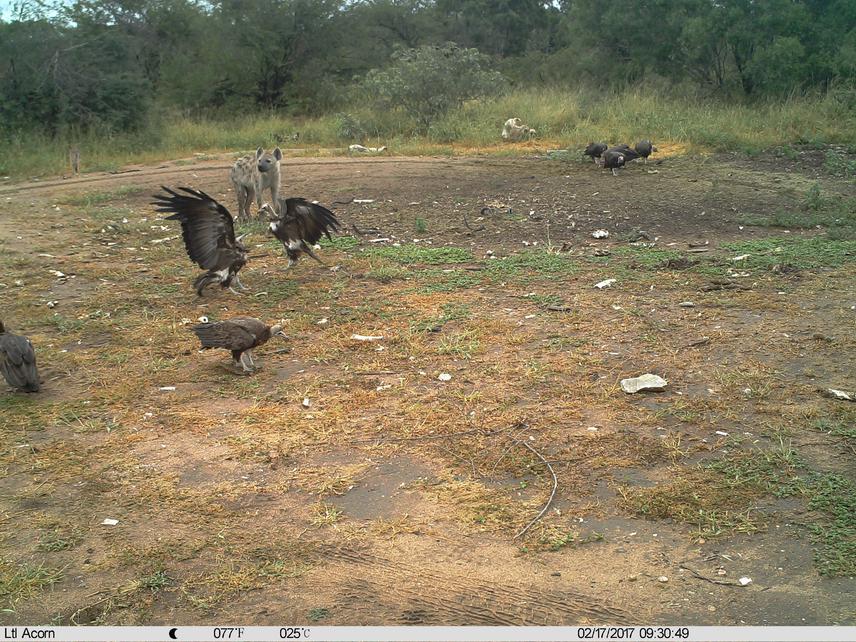Lindy Jane Thompson
Other projects
27 Nov 2015
Ecology of the Hooded Vulture, Necrosyrtes monachus, in the Kruger-to-Canyons Biosphere Reserve, South Africa
My collaborators and I aim to investigate Hooded Vulture movements from birds in East, West and southern Africa. We also aim to identify any nest predators that may impact on Hooded Vulture breeding success. We also aim to implement environmental education activities at schools in the region, and to give talks for local communities about vultures and their importance in the ecosystem. Ultimately, we will compile our findings into a management plan for the species in South Africa.

We are investigating the breeding biology, nest site preference, movement ecology and feeding biology of the critically endangered Hooded Vulture, Necrosyrtes monachus, in South Africa. This secretive species is relatively little studied, yet a 50% decline in its numbers in the last 50 years suggests that urgent attention is needed for effective conservation measures to be implemented. In addition to elucidating the basic biology of the species for informing a species conservation plan, we are providing capacity building and temporary work among the local community, and we aim to implement environmental education in rural communities where vultures are routinely poisoned.
The project is a collaboration between Dr Lindy Thompson and her supervisor, Prof Colleen Downs, both at the University of KwaZulu-Natal in South Africa, and Andre Botha from the Endangered Wildlife Trust in South Africa, Dr Campbell Murn from the Hawk Conservancy Trust in the UK, and Dr Keith Bildstein from Hawk Mountain Sanctuary in the USA. We are also working alongside an MSc student who is studying whether the use of vulture body parts for traditional medicine poses a threat to vultures in the Kruger-to-Canyons Biosphere Reserve.
With funding generously provided by The Rufford Foundation, we will be able to expand the project in 2017, monitoring more nests and providing environmental education activities at local schools. We are also collaborating with Dr Sandi Willows-Munro, a geneticist at the University of KwaZulu-Natal, to investigate genetic diversity of the Hooded Vultures in the Kruger-to-Canyons Biosphere Reserve. Our results will be shared through the project’s Facebook page, and through updates on the Rufford Foundation’s website, as well as through public talks, newspaper articles, and magazine articles. We are extremely grateful to all of the landowners and land managers who have allowed us access, and to the volunteers and field assistants who have helped with fieldwork.